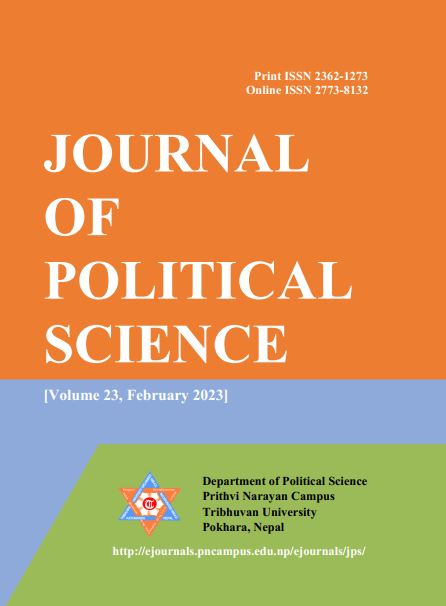Paradigm Shift in Social Science Research: A General Perspective
DOI:
https://doi.org/10.3126/jps.v23i1.52289Keywords:
Paradigm shift, social science research, positivism, indigenous research, decolonizationAbstract
This paper explores the paradigm shift in social science research from positivism to the contemporary approach of indigenous research paradigms. The paper is based on relevant literature on paradigm shift reviewed. It begins with a discussion of Kuhn’s notion of paradigm and paradigm shift from its historical perspectives towards the contemporary advancements of alternate paradigms such as interpretivism, criticalism, post modernism and indigenous research paradigm. Every paradigm follows certain stages from normal science, crisis and revolution or a shift into a new paradigm. The contemporary literature on social science research reveals how decolonization occurs through indigenous research paradigms. The paper then delves into the concept of decolonization and the emergence of indigenous research paradigms. The paper also examines the implications and challenges of indigenous research paradigms, including issues of decolonization among the indigenous communities of the global south. The paper concludes by emphasising the significance of decolonizing research methodologies and identifying the perspectives of marginalized communities. The existing positivist paradigm has been challenged by the critical, interpretive, and post- modern paradigms for a better understanding of social phenomena. Although there has been a positive development in the paradigm shift in social science research, challenges such as the problem of representation and the critique of power and knowledge still exist to be addressed.
Downloads
Downloads
Published
How to Cite
Issue
Section
License
Copyright (c) 2023 Department of Political Science, Prithvi Narayan Campus

This work is licensed under a Creative Commons Attribution-ShareAlike 4.0 International License.




